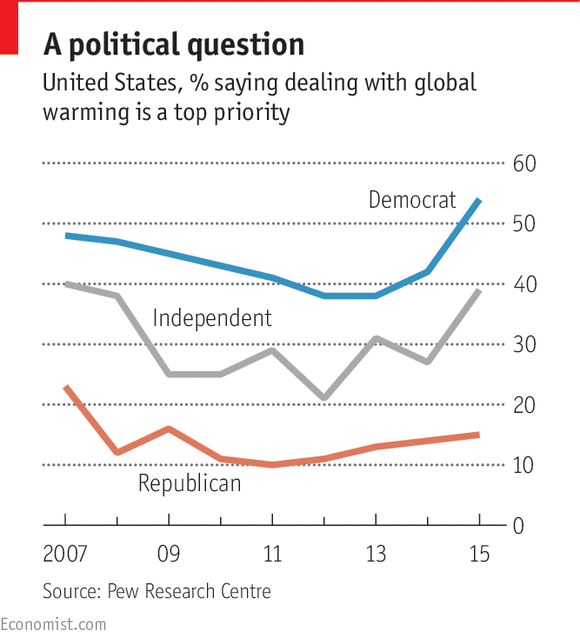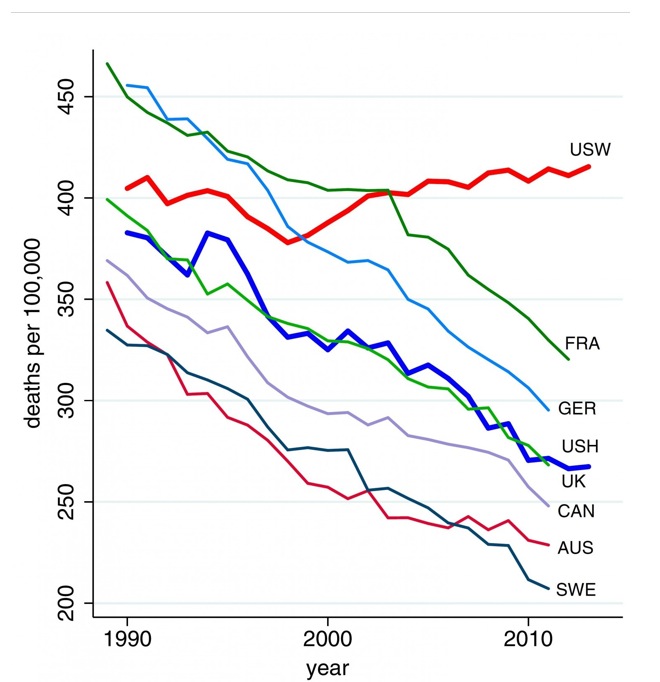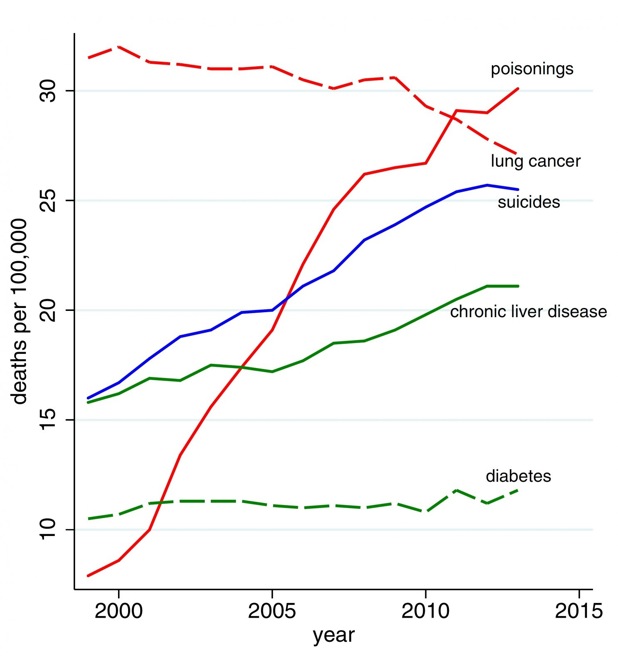The climate is speaking to us, but is anybody listening? Here is what the climate is telling us:
50% of Forest Bird species will go extinct in 50 years
99% of Rhinos gone since 1914
97% of Tigers gone since 1914
90% of Lions gone since 1993
90% of Sea Turtles gone since 1980
90% of Monarch Butterflies gone since 1995
90% of Big Ocean Fish gone since 1950
80% of Antarctic Krill gone since 1975
80% of Western Gorillas gone since 1955
60% of Forest Elephants gone since 1970
50% of the Great Barrier Reef gone since 1985
40% of Giraffes gone since 2000
40% of ocean phytoplankton gone since 1950
70% of Marine Birds gone since 1950
97% – Humans & Livestock are now 97% of land-air vertebrate biomass, while 10,000 years ago humans were just 0.01% of land-air vertebrate biomass
1,000,000 – The number of humans, net, that are added to earth every 4½ days
But, you gotta admit, antibiotic resistant germs are doing really, really well!
Now, maybe you accept climate change as a reality. Or, you may be a climate change skeptic, or a climate change denier, but no one should misunderstand what the climate is telling us. Slowly, the world is seeing more greenhouse gases being emitted into the atmosphere, destroying ecosystems and encouraging global warming. The greenhouses gases can be caused by many different things, however, a lot of the earth’s greenhouses gases comes from various industrial businesses that burn hydrocarbon fuels. Some of these businesses have been asked to pay carbon tax as a result. The money from this tax gets contributed towards fighting climate change. Hopefully, more businesses will realize the impact they are having on the world and will look to lower the amount of carbon dioxide that they emit.
And, given the above, shouldn’t activists on all sides be discussing what can be done to stop the decline in flora and fauna? There cannot be a more important global problem that needs solving. Even Mr. Market should be working to help solve the die-off of species. Yet, we haven’t heard any ideas from him.
Here’s an idea: Getting human population growth and global GDP growth under control must be job one. Income inequality shouldn’t automatically prompt politicians to make calls for ever higher GDP growth, so that trickle-down will help the masses, since growing our way out of the die-off of species isn’t a viable long-term strategy.
You’d think politicians and economists would be asking: “Do we need to rethink our entire conceptual framework about population and economic growth?” Well, they aren’t interested in that thought.
They offer the same old thinking, just rearranged. If you want a Thanksgiving metaphor, your dinner plate is filled with turkey, dressing, mashed potatoes, and cranberry sauce. And you take your fork and mix them all up, but they’re still the same. Even when you put gravy over all of it, it’s still not new. But it looks new, if somebody doesn’t think too carefully about what’s behind the new analysis.
Here is a view of the political divide on global warming in the US from The Economist:
And the NYT reported that on Tuesday, Republicans undercut Mr. Obama’s pledge at the Paris Climate Summit by approving two measures that Obama is sure to veto. The vote was largely along party lines. After the votes, Sen. John Barasso, (R-WY) said: (brackets by the Wrongologist)
While the president is at this climate conference, the American people [believe] that [his pledge] has a very, very low priority…
When Republicans in the Senate think the American people see climate change as a low priority when the poll above says they actually think its a pretty big deal, you know why we can’t get at solutions to the die-off of species.
Isn’t it curious that intelligent, educated conservatives denigrate climate change and its consequences, as some kind of phony science? They must see that there are plenty of business opportunities, and fortunes to be made as a result of climate change. This would normally have their hearts all aflutter at the chance to put their money behind a few disruptive innovations. But they have no interest, and are simply standing pat on the problem.
They are not alone. The Economist says the climate change just ain’t a big issue globally: (emphasis by the Wrongologist)
A giant opinion-gathering exercise carried out by the UN finds that people in highly developed countries view climate change as the tenth most important issue out of a list of 16 that includes health care, phone and internet access, jobs, political freedom and reliable energy. In poor countries-and indeed in the world as a whole-climate change comes 16th out of 16.
It’s beginning to look like a few billion lemmings are just gonna follow their reproductive organs off a cliff.
And even if a few of today’s lemmings think they’re doing something new, for all of them together, well, things look grim.



